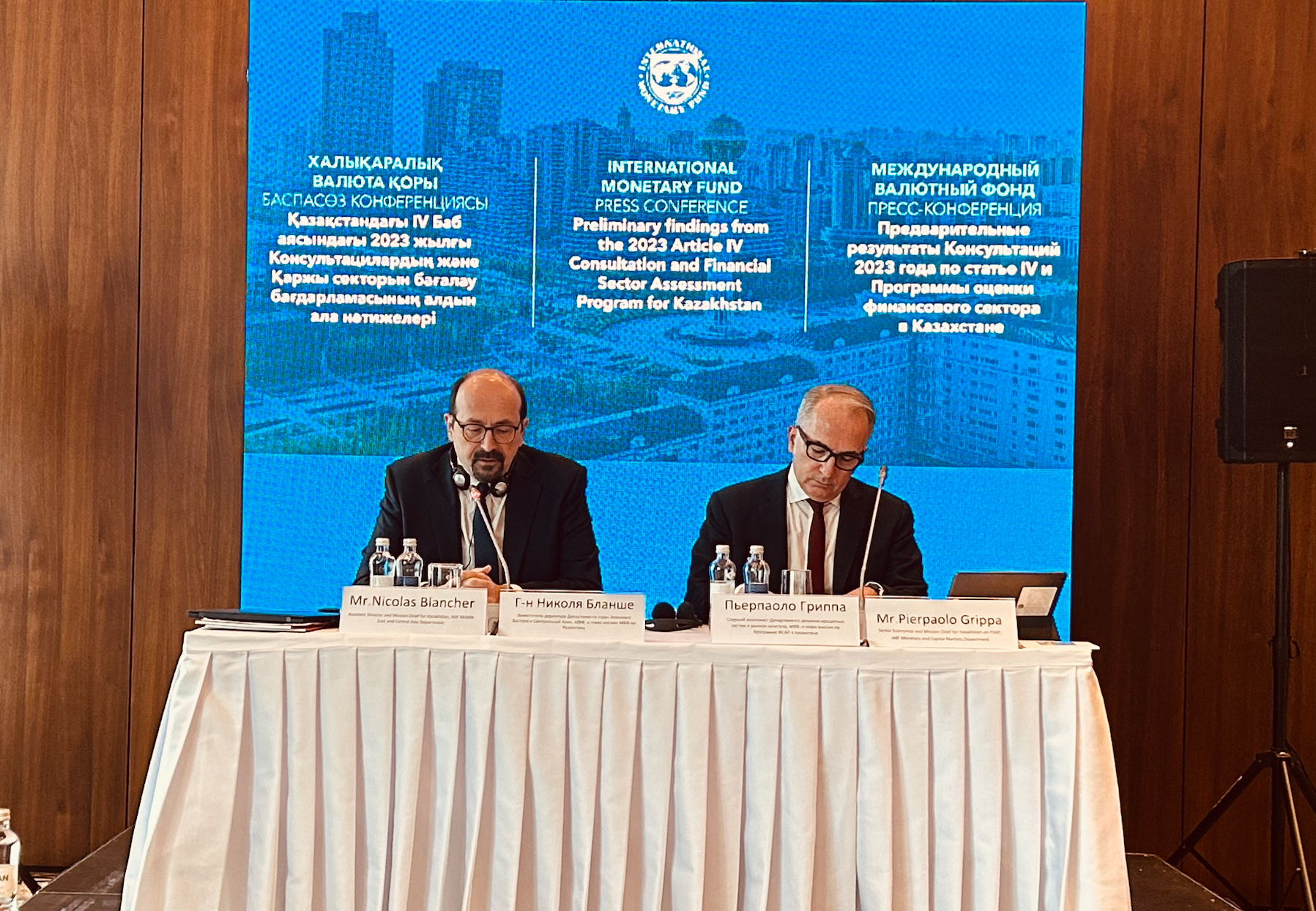ASTANA — The International Monetary Fund (IMF) forecasts a more moderate growth rate of 3-3.5% next year from 4.8% this year, said the IMF mission chief for Kazakhstan Nicolas Blancher during a Nov. 21 press conference on the outcomes of Article IV consultation with Kazakhstan.

Blancher noted that Kazakhstan has seen a decrease in inflation but remains above the target of 6-5%. Photo credit: The Astana Times/Aida Haidar.
According to Blancher, the spillovers of the Russian-Ukraine conflict had a limited impact on Kazakhstan’s economy.
“Economic growth has been strong this year. We projected that by the end of next month it will be about 4.8% per year. It has been driven by all sectors – oil and the non-oil sector,” Blancher said.
Economic Outlook and Challenges
According to Blancher, Kazakhstan’s economic outlook is characterized by optimism and caution as it charts its path toward non-oil growth. Blancher highlighted that on the downside, the specter of declining oil prices poses a significant threat to Kazakhstan’s economy, given its reliance on oil production. Potential export disruptions, slower growth in trading partners, and the global economic environment could exacerbate the challenges.
“The global environment is uncertain, for sure still, and so there are risks to the global environment. Spillovers from the war in Ukraine could increase and be more adverse. Geopolitical fragmentation is also a risk, leading to secondary sanctions’ potential impact. Then, of course, should social tensions resurface in Kazakhstan, that could impact the pace of policy and reform implementation,” Blancher said.
The IMF mission chief also emphasized that the country faces climate-related risks in the medium to long term due to the global transition to a low-carbon economy. On a more optimistic note, the IMF recommends focusing on factors that could elevate growth levels. Innovative prospects and accelerated reforms are key areas that could contribute to Kazakhstan’s economic advancement.
Blancher noted that Kazakhstan has seen a decrease in inflation but remains above the target of 5%. According to him, tariff increases for utility and energy domestically are anticipated, potentially leading to more systemic integration.
Role of the National bank and Recommendations for Fiscal Measures
He also focused extensively on the work of the National Bank of Kazakhstan (NBK). Blancher emphasized that there is room for improvement, particularly in removing non-core roles of the NBK and ensuring a clear delineation of responsibilities for addressing innovation and maintaining integrity. One area of concern is the potential for political interference in determining interest rates. The IMF emphasized the importance of the NBK’s independence and the need for clarity in its mandate within the legal framework.
On the fiscal front, the IMF recommended Kazakh authorities pursue budgetary consolidation in the future. According to Blancher, reforms to the tax code, including the proposed increase in the VAT rate and personal income tax, are welcomed. However, fiscal accountability and transparency improvements are needed, particularly in reducing discretion in the system and avoiding resource allocation from the National Fund without proper oversight.
The reinstatement of fiscal rules, suspended last year, is commended, but the IMF recommends not only improving and simplifying them but also introducing a new agency to oversee compliance.
“We recommend also complementing them with institutions such as an Independent Fiscal Council, that could be in charge of overseeing the compliance with the rules, as well as clear, strong, strict escape clauses to manage discretionary spending effectively,” Blancher said.
Kazakhstan’s Exposure to Global Climate Change Policies
The preliminary results of the IMF’s 2023 Financial Sector Assessment Program (FSAP) were also presented during the press conference by Pierpaolo Grippa, the IMF Chief Economist. Grippa emphasized the importance of supervision in the banking sector, encompassing crisis management and regulatory tools to effectively handle banking crises without resorting to public funds while safeguarding financial stability.
The IMF’s FSAP extended beyond traditional financial risks and included climate-related factors. A key revelation from the assessment is Kazakhstan’s exposure to global climate change policies. Under a fast decarbonization scenario, Grippa warned of estimated real losses for the banking system being 30% higher over five to seven years, necessitating preparation for tougher times.
“The capital and liquidity buffers of banks are adequate. For most banks, there might be the need to build up buffers to be able to face the kind of extreme scenarios that we tested satisfactorily,” he said.
He coupled this acknowledgment with an awareness of the uncertain global scenario, encompassing financing energy, commodity markets, and geopolitical risks.

